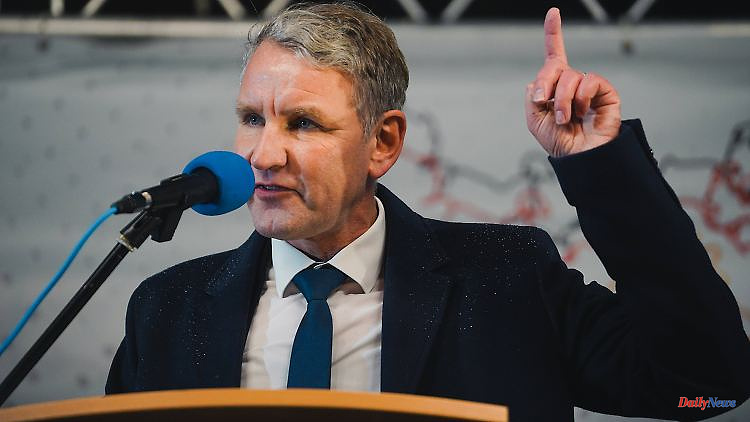Started as a party of economically liberal EU skeptics, the AfD has established itself ten years after its founding as a gathering place for right-wing extremist forces. Right-wing extremism researcher Hajo Funke does not believe that she can win majorities in the federal government. In some states it is different.
According to extremism researcher Hajo Funke, the AfD will not gain in importance in Germany in the next ten years. "With its radical orientation, the AfD will remain trapped nationwide in the tower of ten percent plus," said Funke of the "Rheinische Post". Although the party and above all the Thuringian state chairman Björn Höcke want to power, "I don't think that this will succeed," added Funke.
The AfD is only growing a little at the moment, "it was ahead nationwide," emphasized Funke. However, it is different in Thuringia, Saxony-Anhalt and Saxony. In these countries there is a strategic weakness of all democratic parties, especially the CDU. "We are observing there what we were also able to observe when the Weimar Republic disappeared - that democrats no longer have options that can win a majority." In Thuringia, the AfD has already blocked the ability of the democrats to win a majority. That could happen again "if the CDU continues to perforate its firewall to the AfD and does not normalize its relationship with the Left Party," says Funke.
According to Funke, 80 percent of Germans "do not want to come close to fascist rule." "They are for the Basic Law, for the right to human dignity. That is very present in the studies," said the political scientist.
The AfD celebrates its founding ten years ago this Monday. According to Funke, a researcher on right-wing extremism, it has developed during this time "from a national economic party made up of professors directed against the EU to a right-wing extremist, radicalized association". That's not untypical for Germany, especially West Germany, said Funke. "The NPD was initially more of an old men's club, like the Republicans."












